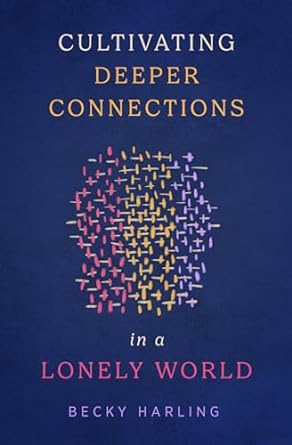
Recently, the news has been filled with reports about the Israeli-Palestinian conflict. It seems as though for years, there has been conflict between the Israelis and the Palestinians. Where did it all start? Way back in the Old Testament we find the roots of the ongoing conflict. This leads to our introduction to Hagar, and the many lessons we can learn from her story.
Key Scripture Passages
Genesis 16, Genesis 21
"He slept with Hagar, and she conceived. When she knew she was pregnant, she began to despise her mistress. Then Sarai said to Abram, 'You are responsible for the wrong I am suffering. I put my slave in your arms, and now that she knows she is pregnant, she despises me. May the LORD judge between you and me.'" - Genesis 16:4-5
"The angel added, 'I will increase your descendants so much that they will be too numerous to count.' The angel of the LORD also said to her: 'You are now pregnant and you will give birth to a son. You shall name him Ishmael, for the LORD has heard of your misery.'" - Genesis 16:10-11
"She gave this name to the LORD who spoke to her: 'You are the God who sees me,' for she said, 'I have now seen the One who sees me.'" - Genesis 16:13
"God heard the boy crying, and the angel of God called to Hagar from heaven and said to her, “What is the matter, Hagar? Do not be afraid; God has heard the boy crying as he lies there. Lift the boy up and take him by the hand, for I will make him into a great nation.” Then God opened her eyes and she saw a well of water. So she went and filled the skin with water and gave the boy a drink. - Genesis 21:17-19
Who Is Hagar in the Bible?
In the book of Genesis, we read the story of Abraham, a man to whom God promised that through his seed all the nations of the earth would be blessed (Genesis 12:3). God assured Abraham and his wife Sarah of a child, even in their old age. However, the journey of faith for Abraham and Sarah was marked by moments of doubt and impatience, leading to significant consequences.
Hagar was an Egyptian slave, bought by Abraham to serve his wife Sarah (Genesis 16:3). Her story is one of abandonment, abuse, and affliction, reflecting the harsh realities faced by many in servitude during that era. Hagar's background as an Egyptian and a slave placed her in a vulnerable position, entirely dependent on her masters' whims and decisions.
As Sarah aged without bearing children, she grew desperate and decided to take matters into her own hands, lacking the faith to trust in God's timing. In an impulsive decision, Sarah commanded Hagar to sleep with Abraham, hoping to obtain a child through her. This practice, while culturally acceptable at the time, did not align with God's ideal plan.
When Hagar became pregnant, the dynamics within the household shifted dramatically. Hagar, now carrying Abraham's child, began to feel a sense of superiority over Sarah, who had orchestrated the plan. This led to tension and conflict, as Hagar's newfound status highlighted Sarah's barrenness. Sarah, despite initiating the idea, became irate and blamed Abraham for the resulting strife. She began to mistreat Hagar, leading Hagar to flee into the wilderness in an attempt to return to Egypt (Genesis 16:6-7).
In her distress and abandonment, Hagar encountered "the angel of the LORD" (Genesis 16:7). This divine encounter is interpreted by some theologians as a meeting with an angel sent from God, while others believe it was a pre-incarnate appearance of Jesus Christ. Regardless, in her moment of despair, God met Hagar and spoke to her, offering comfort and guidance. Hagar acknowledged God's presence, calling Him "the God who sees me."
Hagar returned to Abraham's household and gave birth to Ishmael. However, the story did not end there. When Sarah eventually bore Isaac, the son promised by God, further tensions arose, leading to Hagar and Ishmael being sent away. Despite being cast out, God did not abandon them. The LORD pursued Hagar and her son once more, providing for their needs and promising that Ishmael would also become a great nation (Genesis 21:17-21).
Hagar's story is a powerful narrative of resilience and divine care. As an Egyptian slave, her life was filled with suffering and marginalization. Yet, in her darkest moments, God saw her, spoke to her, and provided for her and her son. Hagar's experience illustrates that God's compassion extends to all, regardless of their status or circumstances, and His promises prevail despite human mistakes and impatience.
Tucked within this story are 3 life-changing truths about God:
3 Truths Christians Can Learn from the Story of Hagar in the Bible
1. God sees and hears the forgotten. God heard Hagar sobbing in the wilderness (Genesis 21:16-17) and He hears your cries as well. Sarah also felt forgotten. God had not answered her prayers for a child. God had not forgotten. His timetable was merely different. He is the God who bends down to listen to every murmur and groan of the human heart (Psalm 116:2 NLT).
You may feel forgotten, but God has not forgotten you. He sees. He has seen every tear you have cried. In fact, the Psalmist tells us that God collects our tears in his bottle (Psalm 56:8). Strengthen your faith and dare to believe He is listening and in His time, He will answer.
2. God loves and pursues sinners. Often in church circles, we think in terms of “insiders and outsiders.” People of faith and those who have none. God, however, sees all humanity in terms of them needing a Savior, and He passionately pursues all! Think about Jesus. Jesus spent far more time with sinners and the outcasts of society than He did with churchgoers. It’s kind of a disturbing thought, but also a reality check for those of us who are churchgoers. Jesus spent time with those whom we might consider immoral. He had deep conversations with prostitutes, heathens, the bloodied, the bruised, and the broken. All the outcasts of society were inexplicably drawn to Jesus.
Hagar was an outcast. She was a slave and was looked down on by both Abraham and Sarah. However, in God’s eyes, she was precious and worth pursuing.
As we look at the violence in the Gaza strip, there are many well-meaning Christians who are preaching that God’s heart is with Israel. That’s true, but God’s heart is also for those on the other side. The truth is, God values even terrorists and pursues them with a heart of love. After traveling around the world, my husband and I actually know former terrorists who have come to know and embrace the love of Christ. Their hearts have been changed. We must remember as believers that our first calling as people who love and follow Christ is to reflect His love to the world around us, even to those we consider enemies. God loved Hagar and drew her to Himself with a love that far exceeds any human love, and He still pursues sinners today.
3. God gives grace, but often allows the consequences of our sin to impact others. Though God’s plan was to bless Isaac as the son of Abraham and Sarah, God tenderly cared for Ishmael. When Abraham eventually sent Hagar away, God met her once again in the desert. God promised that He would make Ishmael into a great nation and then the Scripture tells us, “God was with the boy” (Genesis 21:20).
While God redeems and restores our foolish mistakes and lack of faith, there are often consequences that continue to impact others. Sarah’s impulsive decision to act on God’s behalf rather than trusting Him caused Hagar and Ishmael great pain. Beyond just them, her lack of faith has resulted in years of conflict between Jews and Arabs. The impact of one sin is often staggering! Sin is never committed in a vacuum. It always affects other people.
From Ishmael, came the Arab race. In fact, Muslims believe he was the one whom Abraham offered up to the Lord on the altar. From Isaac’s seed came the Jewish race. As believers, we know that Isaac was offered on the altar at Moriah, and it is a beautiful picture of God offering up His only Son on calvary. However, the tension between Arabs and Israelis has never diminished. Sarah’s impulsive sin has caused generations of conflict. It is a good reminder to all of us. As believers, our sins are covered by the blood that Jesus shed on the cross. We are forgiven and set free. However, that doesn’t mean the consequences of our sinful choices are automatically erased.
What This Means for Us
Consider. How’s your faith? Are you impatient wondering if God has forgotten you? You aren’t going to be perfect as a believer. You are going to make mistakes and sin. However, when you’re on the brink of making a life-altering choice, consider, “Who will my decision impact?” When you’ve sinned, consider, “Who got hurt because of my actions?” Then confess to God and ask for forgiveness (1 John 1:9). Also, take steps to apologize, ask forgiveness, and make amends with those who were impacted by your choices.
Understand. Part of being a person of faith is seeking to understand how God’s plan is unfolding around the world. Make it your goal to understand what you’re reading in the news. The conflict between the Arabs and Israelis is entrenched in rights to the land and religious rights. Those who are Arabs believe the promise of the land was given to Ishmael because he was Abraham’s oldest son, regardless of the fact that he was born to Hagar. Jews believe the promise was given to Isaac because He was born of Sarah. Make it your goal as a believer in Christ to research and understand how this conflict is rooted historically in the events of the Old Testament (Genesis 16 and 21).
Pray. Exercise your faith through prayer. Once you understand the nature of this age-old conflict, begin to pray and intercede; not only for the Jews but also for Arabs to come to a saving knowledge of Christ. Jesus is presently doing miraculous things in both the Muslim world and the Jewish world. Rather than praying that we or Israel will “win,” why not pray that they would come to Christ?
Pray also for Palestinian believers who are caught in the scuffle. My husband and I have had the opportunity to meet many of them who are asking believers in the Western world to pray for them. They are suffering and hurting as well.
Praise. Finally praise God by faith for His love and faithfulness in your life. Praise Him that when you were far away, He pursued you. He saw your tears and heard your cries. Praise Him that you are alive at this moment in history. As we move closer to the end times, more and more of our attention will be drawn to the Middle East, and the story of Hagar has perhaps never been more relevant than it is today. Praise God that He is still moving and working according to His plan all around the world.
As you consider the seemingly insignificant story of Hagar, ask God to open your heart to understand His ways more fully. Remember, God sees and hears the forgotten, He pursues every sinner and though we are always forgiven for our sins, there may be ongoing consequences. Ask Him to create within you strong faith and a willingness to wait for His perfect timing in your life. When you feel impatient, remember the story of Hagar and ask God to strengthen your faith.
Photo Credit: ©Getty Images/Caiaimage/Monashee Alonso










